Audi Q3 vs Toyota C-HR - Differences and prices compared
Costs and Efficiency:
Looking at overall running costs, both models reveal some interesting differences in everyday economy.
Toyota C-HR has a distinct advantage in terms of price – it starts at 29100 £, while the Audi Q3 costs 38200 £. That’s a price difference of around 9094 £.
Fuel consumption also shows a difference: Toyota C-HR manages with 0.80 L and is therefore clearly more efficient than the Audi Q3 with 1.70 L. The difference is about 0.90 L per 100 km.
As for range, the Audi Q3 performs decisively better – achieving up to 119 km, about 51 km more than the Toyota C-HR.
Engine and Performance:
Power, torque and acceleration say a lot about how a car feels on the road. This is where you see which model delivers more driving dynamics.
When it comes to engine power, the Audi Q3 has a somewhat edge – offering 272 HP compared to 223 HP. That’s roughly 49 HP more horsepower.
In acceleration from 0 to 100 km/h, the Audi Q3 is noticeable quicker – completing the sprint in 5.70 s, while the Toyota C-HR takes 7.40 s. That’s about 1.70 s faster.
In terms of top speed, the Audi Q3 performs noticeable better – reaching 240 km/h, while the Toyota C-HR tops out at 180 km/h. The difference is around 60 km/h.
Space and Everyday Use:
Cabin size, boot volume and payload all play a role in everyday practicality. Here, comfort and flexibility make the difference.
Seats: offers more seating capacity – vs .
In curb weight, Toyota C-HR is minimal lighter – 1505 kg compared to 1635 kg. The difference is around 130 kg.
In terms of boot space, the Audi Q3 offers slight more room – 488 L compared to 447 L. That’s a difference of about 41 L.
In maximum load capacity, the Audi Q3 performs a bit better – up to 1386 L, which is about 231 L more than the Toyota C-HR.
When it comes to payload, Audi Q3 evident takes the win – 535 kg compared to 425 kg. That’s a difference of about 110 kg.
Who wins the race?
The Toyota C-HR proves to be leaves the rival little chance and therefore becomes our DriveDuel Champion!
Toyota C-HR is the better all-rounder in this comparison.
 @ Toyota Motor Corporation
@ Toyota Motor Corporation
Toyota C-HR
Costs and Consumption
View detailed analysis
Engine and Performance
View detailed analysis
Dimensions and Body
View detailed analysis
Audi Q3
The Audi Q3 feels like a grown-up compact SUV with premium polish and city-friendly agility, the sort of car that makes weekend escapes and daily commutes equally satisfying. Inside, you get quality materials and smart packaging that keep things practical without skimping on style, so it’s an easy pick for buyers who want luxury without the drama.
details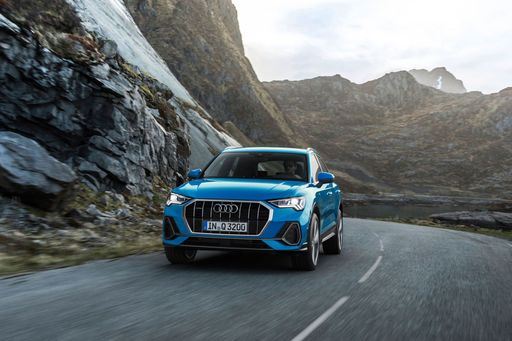 @ Audi AG
@ Audi AG
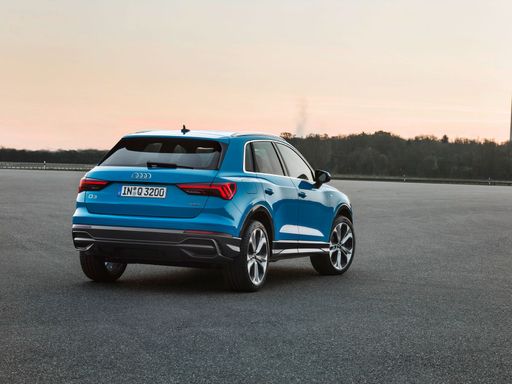 @ Audi AG
@ Audi AG
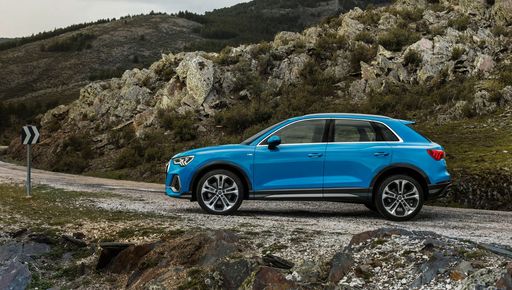 @ Audi AG
@ Audi AG
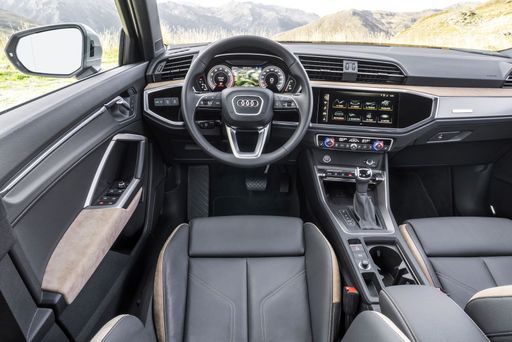 @ Audi AG
@ Audi AG
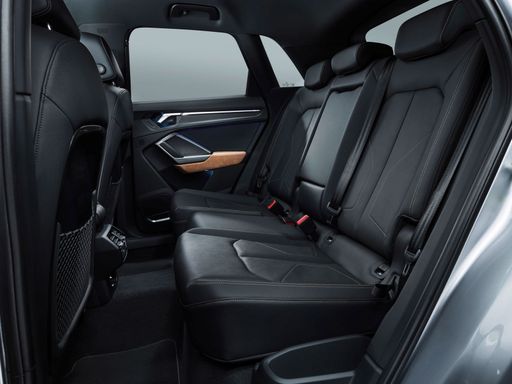 @ Audi AG
@ Audi AG
Toyota C-HR
The Toyota C-HR cuts a striking figure with its angular styling and coupe-like profile, so you’ll never go unnoticed in the supermarket car park. It balances everyday practicality with a nimble, city-friendly personality, making routine commutes feel a touch more fun without asking for forgiveness.
details @ Toyota Motor Corporation
@ Toyota Motor Corporation
 @ Toyota Motor Corporation
@ Toyota Motor Corporation
 @ Toyota Motor Corporation
@ Toyota Motor Corporation
 @ Toyota Motor Corporation
@ Toyota Motor Corporation
 @ Toyota Motor Corporation
@ Toyota Motor Corporation
 @ Audi AG
@ Audi AG
|
 @ Toyota Motor Corporation
@ Toyota Motor Corporation
|
|
|
|
Costs and Consumption |
|
|---|---|
|
Price
38200 - 52900 £
|
Price
29100 - 42800 £
|
|
Consumption L/100km
1.7 - 8.6 L
|
Consumption L/100km
0.8 - 5.1 L
|
|
Consumption kWh/100km
-
|
Consumption kWh/100km
-
|
|
Electric Range
118 - 119 km
|
Electric Range
68 km
|
|
Battery Capacity
19.70 kWh
|
Battery Capacity
-
|
|
co2
39 - 195 g/km
|
co2
17 - 115 g/km
|
|
Fuel tank capacity
45 - 60 L
|
Fuel tank capacity
43 L
|
Dimensions and Body |
|
|---|---|
|
Body Type
SUV
|
Body Type
SUV
|
|
Seats
5
|
Seats
5
|
|
Doors
5
|
Doors
5
|
|
Curb weight
1635 - 1900 kg
|
Curb weight
1505 - 1755 kg
|
|
Trunk capacity
375 - 488 L
|
Trunk capacity
350 - 447 L
|
|
Length
4531 mm
|
Length
4362 mm
|
|
Width
1859 mm
|
Width
1832 mm
|
|
Height
1559 - 1601 mm
|
Height
1558 - 1564 mm
|
|
Max trunk capacity
1196 - 1386 L
|
Max trunk capacity
1076 - 1155 L
|
|
Payload
505 - 535 kg
|
Payload
375 - 425 kg
|
Engine and Performance |
|
|---|---|
|
Engine Type
Petrol MHEV, Petrol, Plugin Hybrid, Diesel
|
Engine Type
Full Hybrid, Plugin Hybrid
|
|
Transmission
Automatic
|
Transmission
Automatic
|
|
Transmission Detail
Dual-Clutch Automatic
|
Transmission Detail
CVT
|
|
Drive Type
Front-Wheel Drive, All-Wheel Drive
|
Drive Type
Front-Wheel Drive, All-Wheel Drive
|
|
Power HP
150 - 272 HP
|
Power HP
140 - 223 HP
|
|
Acceleration 0-100km/h
5.7 - 9.2 s
|
Acceleration 0-100km/h
7.4 - 9.9 s
|
|
Max Speed
208 - 240 km/h
|
Max Speed
175 - 180 km/h
|
|
Torque
250 - 400 Nm
|
Torque
-
|
|
Number of Cylinders
4
|
Number of Cylinders
4
|
|
Power kW
110 - 200 kW
|
Power kW
103 - 164 kW
|
|
Engine capacity
1498 - 1984 cm3
|
Engine capacity
1798 - 1987 cm3
|
General |
|
|---|---|
|
Model Year
2025
|
Model Year
2024 - 2025
|
|
CO2 Efficiency Class
E, G, B
|
CO2 Efficiency Class
C, B
|
|
Brand
Audi
|
Brand
Toyota
|
Is the Audi Q3 offered with different drivetrains?
The Audi Q3 is available as Front-Wheel Drive or All-Wheel Drive.
The prices and data displayed are estimates based on German list prices and may vary by country. This information is not legally binding.
